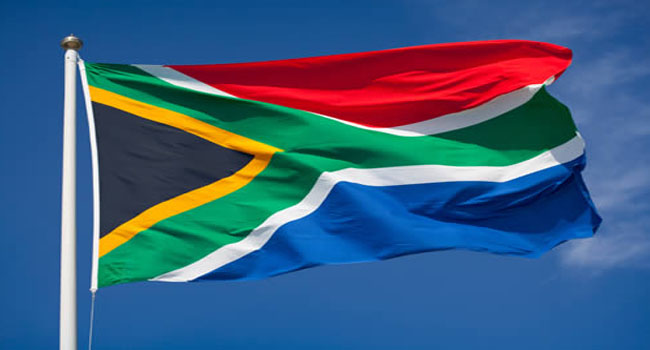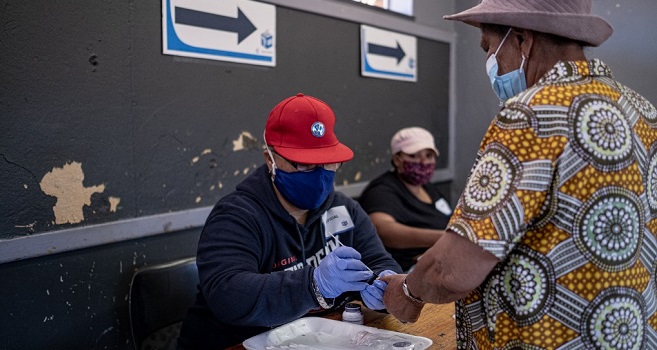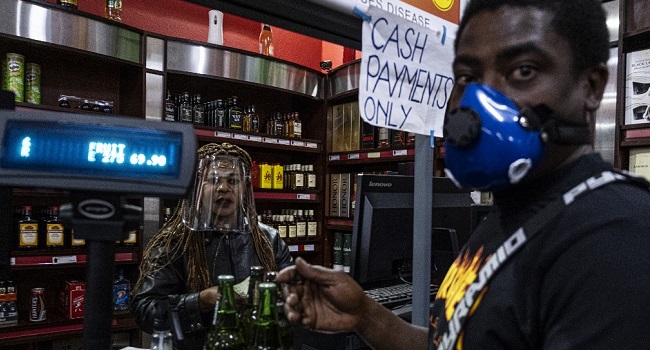
Hundreds marched through the capital, Pretoria to express their anger at rising cases of attacks on women and children.
“Men are providers; men are protectors of our families. We need to be man enough. Enough is enough!” said protester, Floyd Cingca.
“It is time that we act. Stop tweeting, stop Facebooking and go to the streets. That’s where the problem is. It’s time that you and I come together and take action,” Kholofelo Masha, one of the organisers of the march.
One in five South African women older than 18 experience gender-based violence, a 2016 Statistics South Africa’s Demographic and Health Survey showed.
The report also found that four in 10 divorced or separated women reported physical violence by a partner, as well as one in three women in the poorest households.
These statistics have raised concern among gender rights groups that the government of South Africa is doing little to address what activists have called “a war against women”.
“We are dying… our humanity is taken away without even our consent, our bodies are violated that is what is happening so we are here to just pledge, we are here to display solidarity for the ones that we have lost already and to actually ensure safety in the communities, to beg for security from the law of South Africa because the justice system of South Africa, it keeps on failing us all the time. So we are begging for this issue to actually be concluded as a national state of emergency.
About two weeks ago, South Africa was rocked by the news of the brutal murder of 22-year-old, Karabo Mokoena. Her burnt body was found in a field in north Johannesburg, a day after she went missing. Her 27-year-old boyfriend has been charged with the murder.
Karabo’s death sparked outrage and discussion as women on social media shared their personal stories of physical abuse at the hands of men.
Her uncle, Tshepo Mokoena says Karabo’s family even in grieving, hoped her death would help to end the violence against women and force authorities to act.
“Her death came to me and brought a lot of pain into my heart. But the flipside of it, it has awakened the whole world. It has brought some bit of drop into the killing. Even other men who were about to do it – I’m sure once they look at the news; they look at how women are angry and how the whole world is angry.
Then I’m sure they would come to their senses and said, ‘you know what, maybe let me not do it,” he said.
“The biggest challenge in our country is that we talk, talk, talk… and nothing happens. And six months down the line, what happens; there’s another man who kills a woman, there’s another man who assaults a woman. So now, what we must do as men, we must stand up and go to the government, and start changing certain laws,” he added.
“Whether we need to introduce harsher laws or change the laws – this I think we must discuss. It’s a crisis in the country, the manner in which women and children are being killed,” South Africa’s President Jacob Zuma said as he visited the family of a three-year-old girl who was raped and killed last week.
South Africa has one of the world’s highest rates of violent crime and has long been known as the “rape capital of the world”.
Women’s rights campaigner Nondumiso Nsibande says the government and society at large are dangerously complacent towards sexual violence and gender-based violence that some men are not ashamed to admit to it.
“A part of this could also be the way we’ve been socialised. Often time’s men are socialised to behave in a particular way. Men are strong; men are protectors; men should not be in touch with their emotions and all of that. And often times we find that it could actually lead to the situation where they express their anger and frustration by beating women and it’s not something that’s acceptable,” she said.
Activists are pushing for a clear plan on how violence against women can be addressed by government authorities, civil society and the private sector and urge every South African to take on the responsibility to uphold the safety of women and children.




